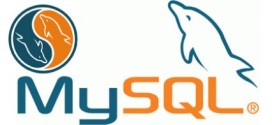I was googling on how to boot an ISO in hard disk/USB disk, so that I can avoid the hectic CD/DVD burning process to test my favorite GNU/Linux distribution, but sadly I couldn’t find any straight forward method to achieve this.
I am blessed to attend ILUG-cochin (Indian Libre User Group) meeting on 4th Sunday of January 2011, where I met with lots of Geeks, who were happy to share their knowledge. Why can’t I be the part of ILUG earlier……. God only knows………
So… I am sharing the technique which I learned in ILUG meeting, with you guys, thanks to Hari, Sreenath for sharing this information with us.
Let us start………
Step 1 : Checking GRUB version
grub-install -v
GRUB 2 should display a version number of 1.96 or later. Legacy GRUB is version 0.97.
If you are using Legacy GRUB, update your GRUB by referring the following link
https://help.ubuntu.com/community/Grub2
So… now you are upgraded to GRUB 2……. let us proceed…..
Step 2 : Get into GRUB command mode
1. Reboot your distribution
2. Hold down SHIFT to display the menu during boot ( ESC in GRUB legacy)
3. Press ‘c’ to get grub command line
Step 3 : Prepare ISO to boot
loopback loop (hd0,1)/iso/ubuntu10.4.iso
hd0,1 is the partition where the ISO file is located
/iso/ubuntu10.4.iso is the location of the filename
Change these two parameters that suites your environment
linux (loop)/casper/vmlinuz boot=casper iso-scan/filename=ubuntu10.4.iso
This command loads the vmlinuz file from ISO,
In Ubuntu vmlinz is stored inside casper , This will change in different distributions, for example in Red Hat/CentOS server vmlinuz is located inside isolinux
Filename=ubuntu10.4.iso use the appropriate file name instead of ubuntu10.4.iso.
initrd (loop)/casper/initrd.lz
This command loads the initrd.lz from ISO, again the location of initrd.lz will change in various distribution, but both vmlinuz and initrd.lz will be in the same locaiton, for example in Red Hat/CentOS server initrd.lz is also located inside isolinux
boot
Boot the system….
Now the system will be booted with ISO you specified…..
 Binbert Technology | Computer | Security | Networking | Mobile
Binbert Technology | Computer | Security | Networking | Mobile

I am very happy to see this post :) I gave a reply to @binbert’s without reading this post ;)
Keep posting :)
Thanks buddy….. Thanks for your feedback
Nice.
Keep up the good work…
Hi,
i’ve tried this to boot ubuntu and it loads the installer, but then it fails when it tries to find de CDROM.
I’ve tryied with the ubuntu live iso and alternative iso and the problem happens on both.
It seems that the loopback created in grub is lost when the installer is ran.
Any ideia on how run the installer using this method?
Thanks.
hi,
just got it to work with the netinstall ubuntu iso.
thanks for the info.